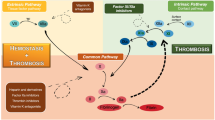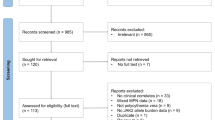Abstract
Objectives
The objective of this study was to determine the quantitative influence of vitamin K epoxide reductase complex subunit 1 (VKORC1) and cytochrome P450 2C9 (CYP 2C9) polymorphisms on warfarin dose requirements in Turkish patients.
Methods
A total of 205 patients taking warfarin for >2 months were enrolled in the study. Deoxyribonucleic acid (DNA) samples from these patients were genotyped for polymorphisms in VKORC1 and CYP2C9 genes. A linear regression analysis was used to determine the independent effects of genetic and non-genetic factors on mean warfarin dose requirements.
Results
The VKORC1 promoter polymorphism (3673 G>A) was associated with differences in weekly mean varfarin dose: for GG genotype the dose was 43.18 mg/week, for GA genotype 33.78 mg/week and for AA genoype 25.83 mg/week (P < 0.0001). Patients who carried VKORC1 and CYP2C9 variants needed a 40% lower mean weekly warfarin dose compared to wild types. Variables associated with lower warfarin dose requirements were VKORC1 3673 AA or GA genotype (both P < 0.0001), one or two CYP2C9 variant alleles (both P < 0.0001), increasing age (P < 0.0001) and non-indication of venous thromboembolism for warfarin therapy (P = 0.002).
Conclusion
Polymorphisms in VKORC1 and CYP2C9 genes were important determinants of warfarin dose requirements in Turkish patients.

Similar content being viewed by others
References
Hirsh J, Dalen J, Anderson DR, Poller L, Bussey H, Ansell J et al (2001) Oral anticoagulants: mechanism of action, clinical effectiveness, and optimal therapeutic range. Chest 119:8S–21S
Van den Besselaar AM (1985) Standardization of the prothrombin time in oral anticoagulant control. Haemostasis 15:271–277
Landefeld C, Beyth R (1993) Anticoagulant-related bleeding: clinical epidemiology, prediction and prevention. Am J Med 95:315–328
Gage BF, Eby CS (2003) Pharmacogenetics and anticoagulant therapy. J Thromb Thrombolysis 16:73–78
Kamali F, Khan TI, King BP, Frearson R, Kesteven P, Wood P et al (2004) Contribution of age, body size, and CYP2C9 genotype to anticoagulant response to warfarin. Clin Pharmacol Ther 75:204–212
Aquilante CL, Langaee T, Lopez LM, Yarandi HN, Tromberg JS, Mohuczy D, Gaston KL et al (2006) Influence of coagulation factor, vitamin K epoxide reductase complex subunit 1, and cytochrome P450 2C9 gene polymorphisms on warfarin dose requirements. Clin Pharmacol Ther 79:291–302
Rettie AE, Korzekwa KR, Kunze KL, Lawrence RF, Eddy AC, Aoyama T et al (1992) Hydroxylation of warfarin by human cDNA-expressed cytochrome P-450: a role for P-4502C9 in the etiology of (S)-warfarin-drug interactions. Chem Res Toxicol 5:54–59
Takahashi H, Echizen H (2001) Pharmacogenetics of warfarin elimination and its clinical implications. Clin Pharmacokinet 40:587–603
Daly AK, King BP (2003) Pharmacogenetics of oral anticoagulants. Pharmacogenetics 13:247–252
Li T, Chang CY, Jin DY, Lin PJ, Khvorova A, Stafford DW (2004) Identification of the gene for vitamin K epoxide reductase. Nature 427:541–544
Rost S, Fregin A, Ivaskevicius V, Conzelmann E, Hörtnagel K, Pelz HJ et al (2004) Mutations in VKORC1 cause warfarin resistance and multiple coagulation factor deficiency type 2. Nature 427:537–541
D’Andrea G, D’Ambrosio RL, Di Perna P, Chetta M, Santacroce R, Brancaccio V et al (2005) A polymorphism in the VKORC1 gene is associated with an interindividual variability in the dose-anticoagulant effect of warfarin. Blood 105:645–649
Wadelius M, Chen LY, Downes K, Ghori J, Hunt S, Eriksson N et al (2005) Common VKORC1 and GGCX polymorphisms associated with warfarin dose. Pharmacogenomics J 5:262–270
Yuan HY, Chen JJ, Lee MT, Wung JC, Chen YF, Charng MJ et al (2005) A novel functional VKORC1 promoter polymorphism is associated with inter-individual and inter-ethnic differences in warfarin sensitivity. Hum Mol Genet 14:1745–1751
Rieder MJ, Reiner AP, Gage BF, Nickerson DA, Eby CS, Mcleod HL et al (2005) Effect of VKORC1 haplotypes on transcriptional regulation and warfarin dose. N Engl J Med 352:2285–2293
Sconce EA, Khan TI, Wynne HA, Avery P, Monkhouse L, King BP et al (2005) The impact of CYP2C9 and VKORC1 genetic polymorphism and patient characteristics upon warfarin dose requirements: proposal for a new dosing regimen. Blood 106:2329–2333
Schalekamp T, Brasse BP, Roijers JF, Chahid Y, van Geest Daalderop JH et al (2006) VKORC1 and CYP2C9 genotypes and acenocoumarol anticoagulation status: interaction between both genotypes affects overanticoagulation. Clin Pharmacol Ther 80:13–22
Carlquist JF, Horne BD, Muhlestein JB, Lappé DL, Whiting BM, Kolek MJ et al (2006) Genotypes of the cytochrome p450 isoform, CYP2C9, and the vitamin K epoxide reductase complex subunit 1 conjointly determine stable warfarin dose: a prospective study. J Thromb Thrombolysis 22(3):191–197
Schelleman H, Chen Z, Kealey C, Whitehead AS, Christie J, Price M et al (2007) Warfarin response and vitamin K epoxide reductase complex 1 in African Americans and Caucasians. Clin Pharmacol Ther 81(5):742–747
Limdi NA, Goldstein JA, Blaisdell JA, Beasley TM, Rivers CA, Acton RT (2007) Influence of CYP2C9 genotype on warfarin dose among African–Americans and European–Americans. Pers Med 4:157–169
Aynacioğlu AS, Brockmöller J, Bauer S, Sachse C, Guzelbey P, Ongen Z et al (1999) Frequency of cytochrome P450 CYP2C9 variants in Turkish population and functional relevance for phenytoin. Br J Clin Pharmacol 48:409–415
Dericioglu N, Babaoglu MO, Saygi S, Bozkurt A, Yasar U (2004) Warfarin resistance with poor CYP2C9 activity and CYP2C9*1*2 genotype. Ann Pharmacother 38:899
Yasar U, Oscarson M, Eliasson E, Sjöqvist F (2000) Mutations of the CYP2C9 gene and the response to warfarin. Surgery 128:281–285
Aquilante CL, Lobmeyer MT, Langaee TY, Johnson JA (2004) Comparison of cytochrome P450 2C9 genotyping methods and implications for the clinical laboratory. Pharmacotherapy 24:720–726
Langaee TY, Ronaghi M (2005) Genetic variation analyses by pyrosequencing. Mutat Res 573:96–102
Anderson JL, Horne BD, Stevens SM, Grove AS, Barton S, Nicholas ZP et al (2007) Randomized trial of genotype-guided versus standard warfarin dosing in patients initiating oral anticoagulation. Circulation 116:2563–2570
Acknowledgements
This work was supported by a grant from the Istanbul University, Turkey, and the University of Florida Center for Pharmacogenomics. The authors would like to thank Lynda Stauffer at the University of Florida Center for Pharmacogenomics for her laboratory assistance in genotyping.
Conflict of interest
None declared.
Author information
Authors and Affiliations
Corresponding author
Rights and permissions
About this article
Cite this article
Oner Ozgon, G., Langaee, T.Y., Feng, H. et al. VKORC1 and CYP2C9 polymorphisms are associated with warfarin dose requirements in Turkish patients. Eur J Clin Pharmacol 64, 889–894 (2008). https://doi.org/10.1007/s00228-008-0507-5
Received:
Accepted:
Published:
Issue Date:
DOI: https://doi.org/10.1007/s00228-008-0507-5




